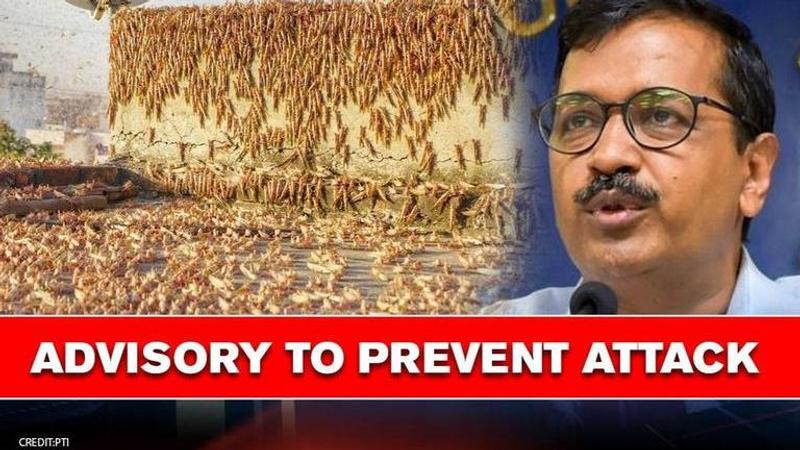Published 15:09 IST, May 28th 2020
Locust Attack: Delhi govt issues preventive measures to be taken to avoid probable attack
After wreaking havoc across India's heartland, Delhi government on Thursday, has issued an advisory to prevent a probable attack in the NCT of Delhi

After wreaking havoc across India's heartland, Delhi government on Thursday, has issued an advisory to prevent a probable attack in the National capital Territory (NCT) of Delhi. The government has advised officials to organise an awareness campaign, not allow locusts to rest at night by spraying insecticides and pesticides at night. The locust attack has been seen in states such as Rajasthan, Madhya Pradesh, Uttar Pradesh, Gujarat, Maharashtra, Haryana while Odisha, Delhi is on high alert.
Delhi issues advisory to prevent locust attack
On Wednesday, the national capital was put on alert as such swarms of locusts in Rajasthan and Haryana now head east. Higher than normal temperatures across north India have helped locusts spread more rapidly. Although Delhi NCR doesn't have large farmlands for locusts to feed upon, the pests do pose a danger to the local vegetation as the city has 22% of its area under green cover.
Centre acts on locust attack
India has issued a high alert after the Locust Warning Organization (LWO) of the Union ministry of agriculture and farmer welfare warned of another attack in May-June this year. To India has issued a high alert after the Locust Warning Organization (LWO) of the Union ministry of agriculture and farmer welfare warned of another attack in May-June this year, the Centre plans to deploy drones for spraying pesticides soon, the Union Agriculture Ministry said on Wednesday. 21 districts in Rajasthan, 18 districts in Madhya Pradesh, 2 districts in Gujarat and 1 district in Punjab have undertaken locust control measures till now.
Locust attack in India
The annual summer attack affects the country's agriculture activity - specifically Rajasthan, Madhya Pradesh, Uttar Pradesh, Chhatisgarh etc. The locust which bred and matured in Iranian provinces and Pakistan’s Balochistan province reached Rajasthan on May 22. The Ministry of Agriculture and Farmers Welfare have deployed drones, satellite-derived tools, special fire-tenders and sprayers at pre-identified border locations. Due to shift in winds, these locusts have now travelled from Rajasthan to Madhya Pradesh's Budhni in Sehore district, as per reports. The state agriculture department has called it the 'biggest attack in 27 years'.
Updated 15:46 IST, May 28th 2020





